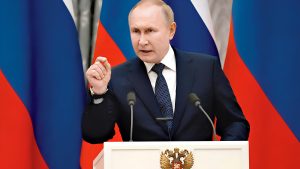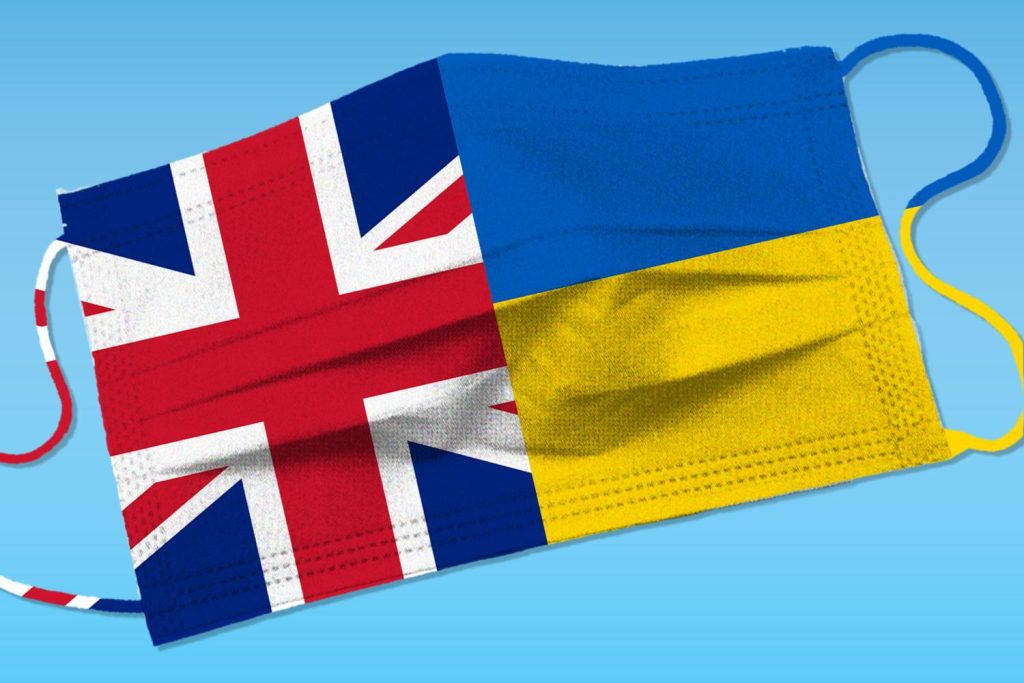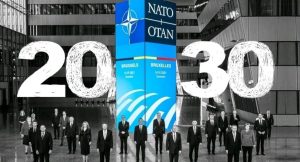
The Fall of Putin
Putin believed that he could achieve the desired result in Ukraine by using Russia’s advantages as blackmail.

What does the EU’s exhibit attitude in recent difficulties such as Brexit, Covid-19 and the Ukraine crisis mean for the future of the union?
Written By; Foreign Analysis – Aug 01, 2023
The EU will disintegrate in 5 years! The far right and nationalism are more popular than ever, this time the EU has no chance… Such ideas and predictions are frequently mentioned in today’s mainstream debates. Indeed, the difficulties that the EU has faced lately are why they are referred to as such. So, are the problems of EU member states so insoluble and big that they cause the EU to disintegrate? Or does the EU have the ability and capacity to come out of every crisis with a much greater experience? In order to answer this question, we must understand and analyze the political conjuncture of the European continent and the values it has built on it in the first establishment process of the EU.
In the lead-up to World War II, the prevailing paradigm of “one country, one race” in Continental Europe pushed European countries into political groupings and ideological confrontations. The exclusionary, nationalist, foreign policy manifestations of European countries during that period caused significant economic and political devastation. Geopolitical ambitions and ideological differences reflected as a “disarrayed and impoverished Europe.” However, between 1945 and 2000, European countries rapidly recovered economically, thanks to the support of the United States’ Marshall Plan and the establishment of the ECSC (European Coal and Steel Community), which marked the first steps towards economic cooperation. The willingness to set aside “language, race, and ideology” differences, as well as the advantages brought by the supranational governance system, where European countries relinquished some of their sovereignty, contributed to transforming Europe from a continent marked by millions of lives lost and almost wiped-out economies to a wealthy, high standard of living, and influential player in world politics.
After the collapse of the Soviet Union, the unilateral global power of the USA was an unprecedented opportunity for Europeans as well. During this period, the EU integration process was much healthier and the “common foreign and security” policy in a world free of wars, crises and uncertainties was behind the Europeans in priority. However, it should not be forgotten that there is no stagnation in global politics. With each passing day, the balance of power between states, regional developments and the rise of other international actors cause other chess games to emerge. For example, on September 11, 2001, the Twin Towers attacks caused the classical concept of security to become history, and the question “What is security?” was discussed again. Changing conditions and equations on a global scale have made itself much more visible almost everywhere and the human family has witnessed unexpected events.
Undoubtedly, one of the most important developments in this series of unexpected events is the departure of the United Kingdom from the EU. An international political environment in which countries became much more dependent on each other necessitated a world in which 17th and 18th century nationalism was suspended. As a matter of fact, the nationalist British people, who did not want to lose their traditions and currency, hesitated to cede even some of their sovereignty and left the EU with 51.9% in the 2016 referendum.
The UK’s decision to leave the EU shocked the world. The United Kingdom was one of the most important and powerful actors of the union, and it was the locomotive of Europe militarily and economically. The cost of the British leaving was very heavy for the European Union. After Brexit, it caused a 40% decrease in the defense and military power of the EU and a 20% decrease in the economy. In addition to such financial losses, Brexit also left a great moral damage to the EU. According to many experts, this break has shown that the EU integration reaching the desired level, the transfer of sovereignty, the idea of a continental Europe in which supranationality dominates, does not and cannot have a real life counterpart.
Although the opinions of the experts who paint such pessimistic pictures about the future of the EU in the short term have their share of truth, the views that Brexit reflects positively on the EU and completely negatively on the United Kingdom have gained weight as of today. First of all, it is useful to remember that today’s world is much more global and like a small town, and that no nation-state alone can solve global threats and problems such as global climate change, large-scale economic contractions, epidemics. However, the people in the UK could not read the current world politics well, with the decision to leave, they narrowed their country’s room for maneuver in international politics and allowed the UK’s economic vulnerability to emerge.
It is understood that the United Kingdom can reflect positively on the EU’s integration and inter-member harmonization process when evaluated theoretically. American political scientist Ernset B. Haas is one of the integration theorists of the EU. Finding the theory of functionalism inadequate, Haas put forward the neo-functional theory and claimed that the integration process of the EU can be completed with this theory. According to the neo-functionalism theory, if the EU member states achieve a full economic union, they will reach the targeted level. What Haas means by the economic union here is that there is a “only valid” currency in the European continent. In other words, it is the enlargement of the Eurozone and its inclusion of more countries.
If the Euro becomes the only valid currency in all of Europe, it will provide Europeans with a strong economic infrastructure. In the words of Haas, this strong economic union will “spread” other areas as well. According to him, a political, military, socio-cultural union is possible with an economic integration. In this respect, it is foreseen that the UK, which has the “pound”, will leave the union, accelerating the integration of the countries that have the “Euro”. Whether Haas’s theory will come true or not will become much clearer in the coming years, but even now, despite facing numerous crises, the EU continues to exist, and these challenges are further binding the EU countries together.
After the 2016 Brexit, the calendars came to 2020 this time. The entire human family, as a whole, was left alone with the biggest epidemic of 100 years. The coronavirus epidemic, which started in China, affected the whole world in a very short time. In order to prevent the spread of the virus, countries started to fight the coronavirus in the light of very strict measures. During this period, in addition to the measures taken by the countries in their own internal affairs, international travel and trade were stopped with the closure of airports. Under these conditions, even for a few months, countries had to cope with difficulties individually.
Honestly, Kovid-19 caught many countries unprepared both economically and medically. Especially for covid patients, the inadequacy of the current number of hospitals, the inadequacy of the health infrastructure such as the lack of masks and medical special clothes made the fight against the virus much more difficult. In all this turmoil, the unilateral and selfish attitudes of the EU member states in the early stages of the epidemic caused a kind of political crisis as well as the health crisis. This point, which was frequently underlined by many experts during that period, was criticized as “the EU’s integration and unity goals do not correspond”. The question “Why does the EU exist if there will be no solidarity in such a crisis environment?” was on everyone’s agenda.
Although such criticisms have some justification, there is a very important point that should not be forgotten: States are run by people, not robots, and people have feelings. The human mind and way of thinking have undergone a great change and transformation since ancient times. Especially in parallel with the development of economy and technology, people started to be more understanding, conscientious and compassionate than before.
In addition to this, there are aspects that never change structurally in human beings. In times of stress, panic, excitement, or fear, the desire of human beings to ensure their own safety first is quite normal by nature. After the initial moment of crisis and panic has passed, our composure returns and we look at the world again as we used to.
This one-sided attitude of the EU towards each other in the early days of the covid-19 epidemic is a purely humanitarian situation. As a matter of fact, after the first 3 months of the crisis, under the leadership of the ECB (European Central Bank), many EU countries gave each other great economic concessions and helped each other in order to repair the economic damage caused by the covid-19 right.
In an environment where the world is changing very rapidly and the perspectives of international actors differ from the past, it is possible to clearly observe that the protection of the Kantian liberal values that the EU believes in, is the flag bearer, is getting harder and harder each day. In a system where a supranational organization, which is the third largest in the world economically but has only 2 EU members (Italy, France) from the 15 strongest militarily, where logic and diplomacy is left behind, and almost every country follows romantic, emotion-based policies, the EU This weak military power of s is now almost dysfunctional and vulnerable. As a matter of fact, Putin’s “unnecessary” war in Ukraine in February 2022 has once again revealed the weakness of the EU’s military power and its clear dependence on the United States in security, defense and military matters.
The Ukrainian crisis has openly declared that the world and international politics are “carnivorous”, and it has become a necessity for “herbivorous” actors to increase their military presence in a system built on these fault lines. The necessity of increasing the military weight of Continental Europe, especially within the framework of NATO, under the leadership of the USA, has been well understood in the course of time, and is currently trying to fulfill its duty in this regard. While it is still a question mark whether the EU will fully keep up with the changing global conditions, it is inevitable that the union will take the necessary measures, even small ones, and that the union will gain a strong military structure.

Ahmet Aksu is an undergraduate student in Political Science and International Relations at Necmettin Erbakan University. His main areas of study are Foreign Policy Analysis, International Relations Theories and the Asia-Pacific Region. Aksu's articles are also published in the Amerika Gazetesi.

Putin believed that he could achieve the desired result in Ukraine by using Russia’s advantages as blackmail.

The 2030 Concept of the NATO; Their Big Nightmare China